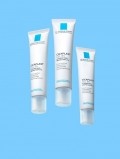Sustainability ‘hotspots’ for cosmetics formulation and how to respond

The issue was discussed at the recent Sustainable Cosmetics Summit European Edition in Paris.
Speaking at the event, Margarida Gama, Thinkstep, business sustainability software and services provider, explained one route to determining and responding to sustainability concerns at the ingredient level, using technology to avoid ‘greenwashing’ claims.
A materiality assessment can be conducted to determined which are the most important topics for the most relevant stakeholders, the expert explains.
Following this, a Sustainable Solution Steering approach can then be used to establish priorities between different products and topics
“The cornerstone of the sustainability journey is the sustainability assessment,” she explained, noting that using this assessment, data can be analysed to come up with clear sustainability-improving actions for any given formulation.
“In order to quantify the environmental impacts related with cosmetics products, user friendly eco-innovations can be used.”
How does this work in practice?
Using those aspects that you have determined are relevant to stakeholders, you can assess how to improve the sustainability of specific ingredients.
It is possible to take specific products and create datasets on the ingredients (and the amounts) used in their composition.
Gama suggests the following as some example issues relevant to stakeholders include:
- Abiotic vs. renewable resources
- Human and labour rights
- GWP (carbon footprint)
- Biodiversity
- Quality of life – effect of the product on the user (improved well being)
- Energy use
- Water use
- Health and Safety
- Eco-toxicity and biodegradability
Then, it is possible to apply ‘eco-innovation’ tools, such as those offered by Thinkstep, to the data, creating an interactive report with integrated parameters.
This can include comprehensive analysis of energy, material consumption and environmental aspects. It can also include comparison of alternatives, via scenario generation.
Using these reports, it is then possible to determine which ingredient(s) within a given product have the biggest impact for the sustainability hot topics you are looking at.
“The cornerstone of the sustainability journey is the sustainability assessment,” Gama explained, noting that using this assessment, data can be analysed to come up with clear sustainability-improving actions for any given formulation.




















